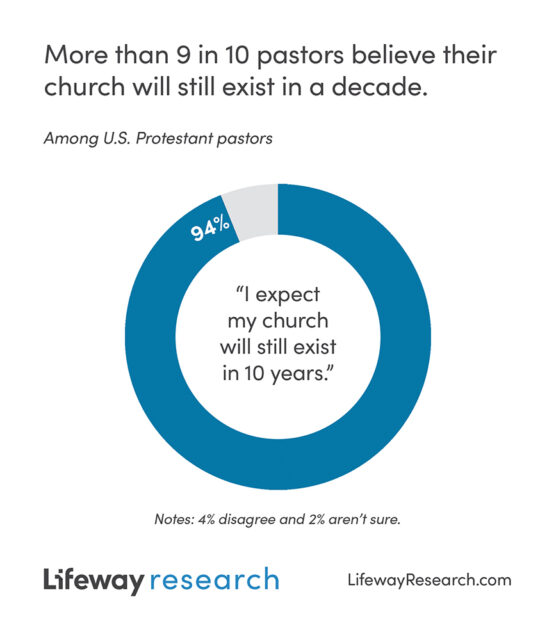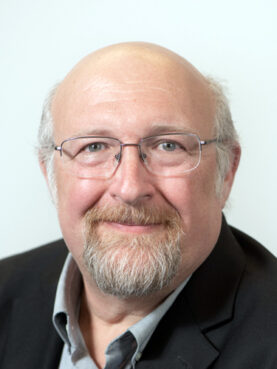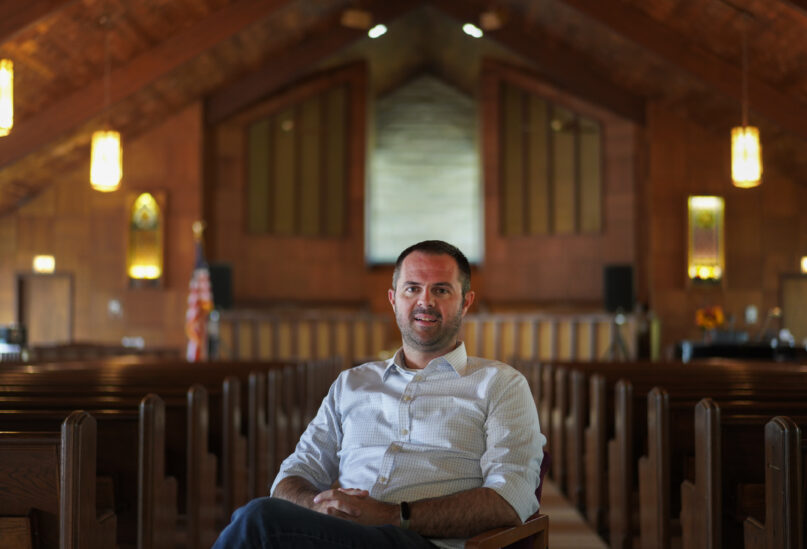(RNS) — American organized religion is a bit like a scene from “Monty Python and the Holy Grail.” It has been on the decline for decades, but churches aren’t dead yet.
A new survey from Nashville-based Lifeway Research found that 94% of Protestant pastors believe their church will still be open in 10 years, with 78% strongly agreeing that will be true.
Four percent of pastors say their church will close, with the other 2% saying they don’t know, according to the survey released Tuesday (April 15). Conducted over the phone, it surveyed 1,003 randomly selected Protestant pastors between Aug. 8 and Sept. 3, 2024.
Those pastors may be right, say researchers who study the American religious landscape. Duke University sociologist Mark Chaves, who runs the National Congregations Study, said past studies found that about 1 in 100 churches close each year. So, the idea that most churches will be around in 10 years isn’t surprising.
“An interesting thing about churches as organizations is that they have ways of staying alive in a very weakened state,” Chaves said in an email. “Other organizations would close, but weak churches have ways of staying alive.”

“More than 9 in 10 pastors believe their church will still exist in a decade.” (Graphic courtesy of Lifeway Research)
Scott Thumma, director of the Hartford Institute for Religion Research, said the long-term trends for congregations are more worrisome. But in the short term, congregations have become more optimistic.
In a 2021 study of the impact of the COVID-19 pandemic on congregations, 7% of church respondents reported their existence was threatened, and 5% said their church was in serious financial difficulty. By 2023, 3% of churches surveyed said they were in serious financial difficulty. That same year, in a study about how the pandemic has affected churches, 2% of church leaders said they were feeling very negative about their church’s future, while 9% were somewhat negative.
Lifeway’s findings that few pastors thought their churches would be closing, Thumma said, were “within the ballpark.”
He also said small churches that have few staff members and have paid off their building can keep going for a long time. They may have already seen some decline and know how to cope with it. Things are harder, he said, for midsize churches that no longer have enough people or money to sustain themselves.
“Small churches can be resilient for a long time, especially when their building is paid for,” said Scott McConnell, director of Lifeway Research.
While many churches may survive the next decade, the 20-year outlook is bleaker.

Scott Thumma. (Photo by Shana Sureck, courtesy of Hartford Seminary)
“People who are in their 70s now won’t be gone in 10 years, but they will be gone in 20 years,” Thumma said. “That’s where you’re going to see the real drop.”
Count the Rev. Nic Mather of St. Stephen’s Episcopal Church in Longview, Washington, among the pastors who are optimistic for the future. The church has seen a slow but steady stream of newcomers in the last few years, mostly people who are seeking spiritual meaning and the kind of close-knit community the church offers.
“There’s a power of being in community with others,” he said, “and that ethos and sense of community is so strong here that it continues to attract people.”
Mather said his congregation is aware that people don’t come to church in the way they did in the past. That’s made it focus more on reaching out to neighbors. The church also allows a number of community groups to use its building, seeing it as a resource for those neighbors.
“We are truly hub for our community. So many people come into our building for things that aren’t church that I can’t imagine this place not being here,” he said.
Bob Stevenson, pastor of Village Baptist Church in Aurora, Illinois, is also optimistic about his congregation’s prospects.
“We’re 40 years old and we have weathered quite a bit, and so unless there is some scandal or some major change socioeconomically in our area, I don’t see anything changing in terms of the church itself,” he said.
Stevenson said the church, which draws about 120 worshippers and is ethnically diverse, has taken steps to “future-proof” itself. That includes paying attention to the integrity of its leadership, something some churches have ignored to their peril. He also said the church has a strong, committed core of members, which will help it continue for the long term. Still, he said, COVID-19 taught him and other church leaders that no one can predict the future.
Ryan Burge, a former pastor and author of “The American Religious Landscape,” said it’s hard to know when a church is ready to close. Burge, a political scientist at Eastern Illinois University, was the longtime pastor of First Baptist Church in downstate Mount Vernon, which closed last summer.
His church, which was more than 150 years old when it closed, had been on the decline for years but rallied more than a few times. Eventually, as older members of the congregation died, there were no young people to take their place.
“All it takes is two or three people to die in close succession, and it’s game over for a lot of those churches,” he said.
The new Pew Religious Landscape Study found that 85% of Americans ages 65 and older identify with a religion, and 78% identify as Christian. However, only 54% of Americans under 30 identify with a religion, including 45% who say they are Christian.
Lifeway Research found some indication that the rate of churches closing might have increased. The survey includes a look at data from the Southern Baptist Convention showing that 1.8% of congregations disbanded or closed in 2022, the last year with data available. If that annual percentage were to hold steady over the next decade, it would mean about 18% of churches would close during that time, which is more than than pastors surveyed would have predicted.
McConnell also said some of the churches that closed may not have had a pastor, which could explain the difference between how pastors feel and the statistics.
“But if we assume the pastors’ survey is accurately reaching enough churches close to shutting down, then yes, Southern Baptist pastors would seem to be more optimistic than the statistics say they should be,” he said in an email.
Still, Burge said pastors are by nature optimistic about the future – that’s part of the job.
“Revival is always around the corner — if we just get one thing to break our way, things will be better,” he said. “You don’t want to have the mentality that we are going to close.”

Pastor Ryan Burge poses for a portrait at First Baptist Church in Mount Vernon, Ill., Sept. 10, 2023. (AP Photo/Jessie Wardarski, File)
And even if pastors know churches will close, they may often believe it will happen to other churches, but not theirs.
“Everyone thinks that churches are going to close,” Amanda Olson, the longtime pastor of Grace Evangelical Covenant Church on Chicago’s North Side, told RNS in 2022, just before the church’s last service. “But nobody thinks it is going to be their church.”
